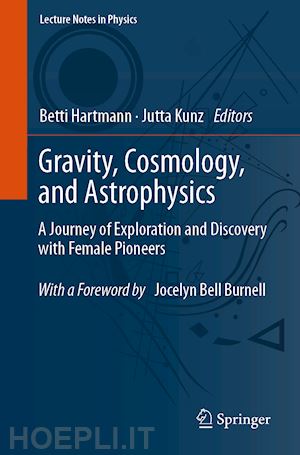
Questo prodotto usufruisce delle SPEDIZIONI GRATIS
selezionando l'opzione Corriere Veloce in fase di ordine.
Pagabile anche con Carta della cultura giovani e del merito, 18App Bonus Cultura e Carta del Docente
This open access book provides graduate students and scientists with fundamental knowledge on the mechanics of granular suspensions as well as on the mathematical and numerical techniques that can be adopted to investigate geophysical flows. To this end, three formidably complex problems (sediment transport, flow-like landslide inception, and gravity currents) are considered. The reader will find a thorough combination of elements of fluid and solid mechanics, rheology, geotechnics, geomorphology, civil, and coastal engineering. The first part of the book introduces the problem of granular suspensions from the mathematical viewpoint, focusing on issues that characterise geophysical flows such as turbulence, the effects of inter-particle contacts, and strong velocity gradients. In the second part, different models that were successfully used to investigate the mechanics of granular suspensions in environmental flows are presented.
Betti Hartmann is currently an Associate Professor in the Department of Mathematics at University College London (UCL), UK. She obtained her PhD in Theoretical Physics from Oldenburg University (Germany) in 2001. Following her doctoral studies, she held post-doctoral positions at the University of Durham, UK from 2001-2003 and at the Université de Tours, France from 2006-2007. In 2006, she completed her German habilitation, a post-doctoral qualification for lecturers at German universities, at the University of Oldenburg. From 2003 to 2006 and 2007 to 2015, she held a Lecturer position at Jacobs University Bremen, Germany, and in 2015, she was appointed as an Assistant Professor at the Instituto de Física de São Carlos at the Universidade de São Paulo, Brazil. She was promoted to Associate Professor in 2016 and left Brazil to join UCL as a Lecturer in 2021. In October 2023 she has been promoted to Associate Professor.
Her research interests lie in the field of nonlinear phenomena in theoretical physics and applied mathematics, with a particular focus on solitons and black holes. Her research has applications in high-energy physics, including cosmology, astrophysics, and particle physics, as well as in low-energy phenomena relevant to condensed matter physics and biophysics.
In 2022, she published a book in German titled 'Vordenkerinnen – Physikerinnen und Philosophinnen durch die Jahrhunderte' in collaboration with a philosopher. The book highlights the achievements of female scientists throughout history.
Jutta Kunz has been a professor of theoretical physics at the University of Oldenburg since 1993. She obtained her Diploma in Physics from the University of Gießen and completed her PhD in 1982 after a year of graduate studies at the University of Washington, Seattle. She held post-doctoral positions at LANL, Los Alamos from 1982 to 1984, in Gießen from 1984 to 1987, at NIKHEF, Amsterdam from 1987 to 1990, and finally at RU Utrecht from 1990 to 1992. In 1989, she obtained her habilitation at the University of Oldenburg, where she was appointed as a professor in 1993. Since 2012, she has been one of two speakers of the Research Training Group 'Models of Gravity' of the German Physical Society.
Jutta Kunz began her career in nuclear physics and later transitioned to intermediate energy physics and high-energy physics with applications to cosmology. Since moving to Oldenburg, her research has primarily focused on gravitational physics, specifically investigating astrophysical objects such as black holes and neutron stars, as well as hypothetical objects like boson stars and wormholes. She has always been dedicated to supporting young female scientists, having supervised a total of 25 PhD students, with 14 of them being women. In 2018, she organized the German Conference of Women in Physics in collaboration with the Working Group on Equal Opportunities (AKC) of the German Physical Society at the University of Oldenburg.











Il sito utilizza cookie ed altri strumenti di tracciamento che raccolgono informazioni dal dispositivo dell’utente. Oltre ai cookie tecnici ed analitici aggregati, strettamente necessari per il funzionamento di questo sito web, previo consenso dell’utente possono essere installati cookie di profilazione e marketing e cookie dei social media. Cliccando su “Accetto tutti i cookie” saranno attivate tutte le categorie di cookie. Per accettare solo deterninate categorie di cookie, cliccare invece su “Impostazioni cookie”. Chiudendo il banner o continuando a navigare saranno installati solo cookie tecnici. Per maggiori dettagli, consultare la Cookie Policy.